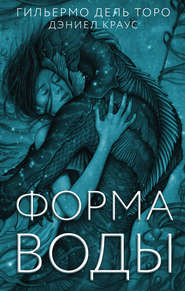По всем вопросам обращайтесь на: info@litportal.ru
(©) 2003-2025.
✖
The Complete Strain Trilogy: The Strain, The Fall, The Night Eternal
Автор
Год написания книги
2018
Настройки чтения
Размер шрифта
Высота строк
Поля
As they approached the airplane, Jim showed Eph and Nora a laminated printout containing an overhead view of the interior seat assignments, numbers corresponding to passenger and crew manifests listed on the back. He pointed to a red dot at 18A.
“The federal air marshal,” Jim said into his microphone. “Last name Charpentier. Exit row, window seat.”
“Got it,” Eph said.
A second red dot. “TSA pointed out this other passenger of interest. A German diplomat on the flight, Rolph Hubermann, business class, second row, seat F. In town for UN Council talks on the Korean situation. Might have been carrying one of those diplomatic pouches that get a free pass at customs. Could be nothing, but there is a contingent of Germans on their way here right now, from the UN, just to retrieve it.”
“Okay.”
Jim left them at the edge of the lights, turning back to his monitors. Inside the perimeter, it was brighter than day. They moved nearly without shadow. Eph led the way up the fire engine ladder onto the wing, then along its broadening surface to the opened door.
Eph entered first. The stillness was palpable. Nora followed, standing with him shoulder to shoulder at the head of the middle cabin.
Seated corpses faced them, in row after row. Eph’s and Nora’s flashlight beams registered dully in the dead jewels of their open eyes.
No nosebleeds. No bulging eyes or bloated, mottled skin. No foaming or bloody discharge about the mouth. Everyone in his or her seat, no sign of panic or struggle. Arms hanging loose into the aisle or else sagged in laps. No evident trauma.
Mobile phones—in laps, pockets, and muffled inside carry-on bags—emitted waiting message beeps or else rang anew, the peppy tones overlapping. These were the only sounds.
They located the air marshal in the window seat just inside the open door. A man in his forties with black, receding hair, dressed in a baseball-style button-up shirt with blue and orange piping, New York Mets colors, the baseball-headed mascot Mr. Met depicted on the front, and blue jeans. His chin rested on his chest, as though he were napping with his eyes open.
Eph dropped to one knee, the wider exit row giving him room to maneuver. He touched the air marshal’s forehead, pushing back the man’s head, which moved freely on his neck. Nora, next to him, teased her flashlight beam in and out of his eyes, Charpentier’s pupils showing no response. Eph pulled down on his chin, opening his jaw and illuminating the inside of his mouth, his tongue and the top of his throat looking pink and unpoisoned.
Eph needed more light. He reached over and slid open the window shade, and construction light blasted inside like a bright white scream.
No vomit, as from gas inhalation. Victims of carbon monoxide poisoning evinced distinct skin blistering and discoloration, leaving them with a bloated, leathered appearance. No discomfort in his posture, no sign of agonal struggle. Next to him sat a middle-aged woman in resort-style travel wear, half-glasses perched on her nose before her unseeing eyes. They were seated as any normal passengers would be, chairs in the full and upright position, still waiting for the FASTEN SEAT BELTS sign to be turned off at the airport gate.
Front-exit-row passengers stow their personal belongings in mesh containers bolted to the facing cabin wall. Eph pulled a soft Virgin Atlantic bag out of the pocket before Charpentier, running the zipper back along the top. He pulled out a Notre Dame sweatshirt, a handful of well-thumbed puzzle books, an audio-book thriller, then a nylon pouch that was kidney shaped and heavy. He unzipped it just far enough to see the all-black, rubber-coated handgun inside.
“You seeing this?” said Eph.
“We see it,” said Jim over the radio. Jim, TSA, and anyone else with enough rank to get near the monitors were watching this whole thing on Eph’s shoulder-mounted camera.
Eph said, “Whatever it was, it took everyone completely unaware. Including the air cop.”
Eph zipped the bag closed and left it on the floor, straightening, then proceeding down the aisle. Eph reached across the dead passengers in order to raise every second or third window shade, the harsh light casting weird shadows and throwing their faces into sharp relief, like travelers who had perished by flying too close to the sun.
The phones kept singing, the dissonance becoming shrill, like dozens of personal distress alarms overlapping. Eph tried not to think about the concerned callers on the other end.
Nora moved close to a body. “No trauma at all,” she noted.
“I know,” said Eph. “Goddamn spooky.” He faced the gallery of corpses, thinking. “Jim,” he said, “get an alert out to WHO Europe. Bring in Germany’s Federal Ministry of Health on this, contacting hospitals. On the off chance this thing is transmissible, they should be seeing it there too.”
“I’m on it,” said Jim.
In the forward galley between business and first, four flight attendants—three female, one male—sat buckled into their jump seats, bodies pitched forward against their shoulder belts. Moving past them, Eph had the sensation of floating through a shipwreck underwater.
Nora’s voice came through. “I’m at the rear of the plane, Eph. No surprises. Coming back now.”
“Okay,” said Eph as he walked back through the window-lit cabin, opening the segregating curtain to the wider-aisle seats of business class. There, Eph located the German diplomat, Hubermann, sitting on the aisle, near the front. His chubby hands were still folded in his lap, his head slumped, a forelock of sandy silver hair drooped over his open eyes.
The diplomatic pouch Jim mentioned was in the briefcase beneath his seat. It was blue and vinyl with a zipper along the top.
Nora approached him. “Eph, you’re not authorized to open that—”
Eph unzipped it, removing a half-eaten Toblerone bar and a clear plastic bottle full of blue pills.
“What is it?” Nora asked.
“My guess is Viagra,” said Eph, returning the contents to the pouch and the pouch to the briefcase.
He paused next to a mother and young daughter traveling together. The young girl’s hand was still nestled inside her mother’s. Both appeared relaxed.
Eph said, “No panic, no nothing.”
Nora said, “Doesn’t make sense.”
Viruses require transmission, and transmission takes time. Passengers becoming sick or falling unconscious would have caused an uproar, no matter what the FASTEN SEAT BELTS sign said. If this was a virus, it was unlike any pathogen Eph had ever encountered in his years as an epidemiologist with the CDC. All signs instead pointed to a lethal poisoning agent introduced into the sealed environment of the airplane cabin.
Eph said, “Jim, I want to retest for gas.”
Jim’s voice said, “They took air samples, measured in parts per million. There was nothing.”
“I know but … it’s as if these people were overcome by something without any warning whatsoever. Maybe the substance dissipated once that door opened. I want to test the carpeting and any other porous surfaces. We’ll test lung tissue once we get these people in post.”
“Okay, Eph—you got it.”
Eph moved quickly past the widely spaced, leather-appointed seats of first class to the closed cockpit door. The door was grated and framed in steel along each edge, with an overhead camera in the ceiling. He reached for the handle.
Jim’s voice in his suit hood said, “Eph, they’re telling me it works on a keypad lock, you won’t be able to get—”
The door pushed open under his gloved hand.
Eph stood very still at the open doorway. The lights from the taxiway shone through the tinted cockpit windshield, illuminating the flight deck. The system displays were all dark.
Jim said, “Eph, they’re saying to be very careful.”
“Tell them thanks for the expert technical advice,” said Eph before moving inside.
The system displays around the switches and throttles were all dark. One man wearing a pilot’s uniform sat slumped in a jump seat to Eph’s immediate right as he entered. Two more, the captain and his first officer, were seated in the twin chairs before the controls. The first officer’s hands lay curled and empty in his lap, his head drooped to the left with his hat still on. The captain’s left hand remained on a control lever, his right arm hanging off the armrest, knuckles brushing the carpeted floor. His head was forward, his hat resting in his lap.
Eph leaned over the control console between the two seats in order to push up the captain’s head. He checked the captain’s open eyes with his flashlight, the pupils fixed and dilated. He eased the man’s head back down gently onto his chest, and then stiffened.
He felt something. He sensed something. A presence.
He stepped back from the console and scanned the flight deck, turning in one complete circle.
Jim said, “What is it, Eph?”








